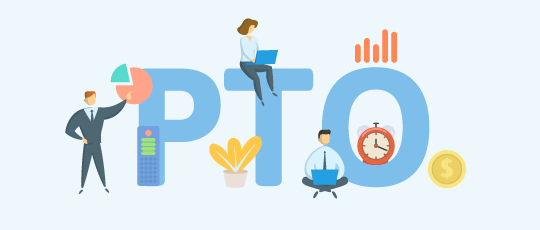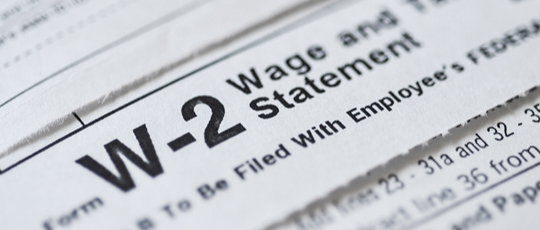For WorldatWork Members
- Getting Benefits Enrollment Right: Big Trends Spark Fresh Strategies, Workspan Magazine article
- Total Rewards Inventory Checklist, tool
- Total Rewards Inventory of Programs & Practices, research
For Everyone
- Open Enrollment Is an Opportunity for Education and Engagement, Workspan Daily article
- Employers Should Exhibit Ongoing Focus on Employee Well-Being and Engagement, Workspan Daily article
- Incorporate AI to Personalize Financial Well-Being Benefits, Workspan Daily article
- Winning Talent with Global Benefits and Total Rewards, webinar
As this year’s open enrollment season wraps up, consider that most of your employees will likely regret their benefits selections. That statement is eye-opening … and backed by research.
According to a recent survey of 1,000 of benefits-eligible U.S. workers by financial services organization Equitable, 53% of respondents regret the choices they made during last year’s open enrollment period.
Workers who experienced regret cited three top reasons:
- 25% failed to adjust their benefits to match their lifestyle changes.
- 20% forgot to make changes to their benefit selections by the deadline.
- 19% did not understand their options or the benefits they selected.
“When employees don’t understand the benefits options on the table or the benefits they’ve ultimately selected, they could be missing out on coverage they truly need that they neglected to enroll in, or they could be enrolled in a benefit that they don’t truly need,” said Stephanie Shields, the head of Equitable’s Employee Benefits business.
Access bonus Workspan Daily Plus+ content on this subject:
- 5 Ways You Can Reduce Workers’ Open Enrollment Regret
- Ch-Ch-Ch-Ch-Changes: Navigating Group Health Election Modifications
So, what’s contributing to this profusion of confusion — and why is open-enrollment regret an issue total rewards professionals should tackle?
Lack of Understanding
Equitable found that employees spent an average of 30 to 60 minutes selecting their benefits during open enrollment, which typically is offered during a two-week window.
Spending limited time on benefits selection, or failing to understand options, can lead to a disconnect in employees’ needs and their coverage, said Michaela Leo, the head of total rewards, North America, at biopharmaceutical company Ipsen.
For instance, workers who rarely use healthcare services may select a more expensive plan than they need. Others who enrolled in a high-deductible health plan (HDHP) may not opt into the accompanying health savings account (HSA), missing out on significant tax savings.
“Employees may be missing out on really valuable benefits because they’re not actively enrolling,” said Jennifer Benz, a senior vice president at HR and employee benefits communication practice Segal Benz. “We see that all the time with flexible spending accounts [FSAs] — people miss out on meaningful amounts of savings because they don’t understand the options and they’re not taking action.”
Failing to Consider Life Changes
Getting married or divorced, having a child or dependent, being diagnosed with a chronic condition, becoming older, or even buying a house are all reasons for revisiting health plans or taking a fresh look at voluntary or supplemental benefits — but that often doesn’t happen, Shields said.
The lack of a dynamic push on the part of many employers also contributes to workers’ lack of proaction during open enrollment, Leo said.
“Most companies conduct passive enrollments unless there are major changes to plan design, and this may lull employees into a sense of not taking action or not educating themselves about whether or not their benefits currently — or in the future — will fit their changing needs or lifestyle,” she said.
Generational Differences
Younger workers experience even higher levels of open enrollment regret, with the Equitable survey showing 78% of Generation Z workers and 64% of millennials saying they regretted last year’s benefit selections, Shields said.
Targeted improvements in the open enrollment process for younger workers would have a significant impact. A survey from HR software company Justworks found that some Gen Z and millennial workers are so averse to selecting health insurance during open enrollment that they would instead elect to do a number of loathsome activities, including doing their taxes, giving up sweets for a month, sitting in the middle seat during a three-hour flight, getting a root canal or breaking their arm.
The large majority (81%) of those workers said they believe HR departments should help employees more during the open enrollment process.
Why It’s Important
The costs of regrettable benefit choices can be steep.
“If people don’t select the right benefits, it can really have an impact on their ability to pay when they need healthcare and show up for work when they need to,” Benz said.
With an average price tag of $14,000 for a five-day hospital stay for an insured individual, 60% of Americans would struggle to cover those costs, the Equitable survey found.
“Open enrollment is about more than just employees checking a box. The benefits that employees choose to select or not select can have a major impact on their financial wellness, which can have negative implications for employers,” Shields said. “A financially stressed workforce can have a direct impact on workforce productivity.”
Editor’s Note: Additional Content
For more information and resources related to this article, see the pages below, which offer quick access to all WorldatWork content on these topics:







